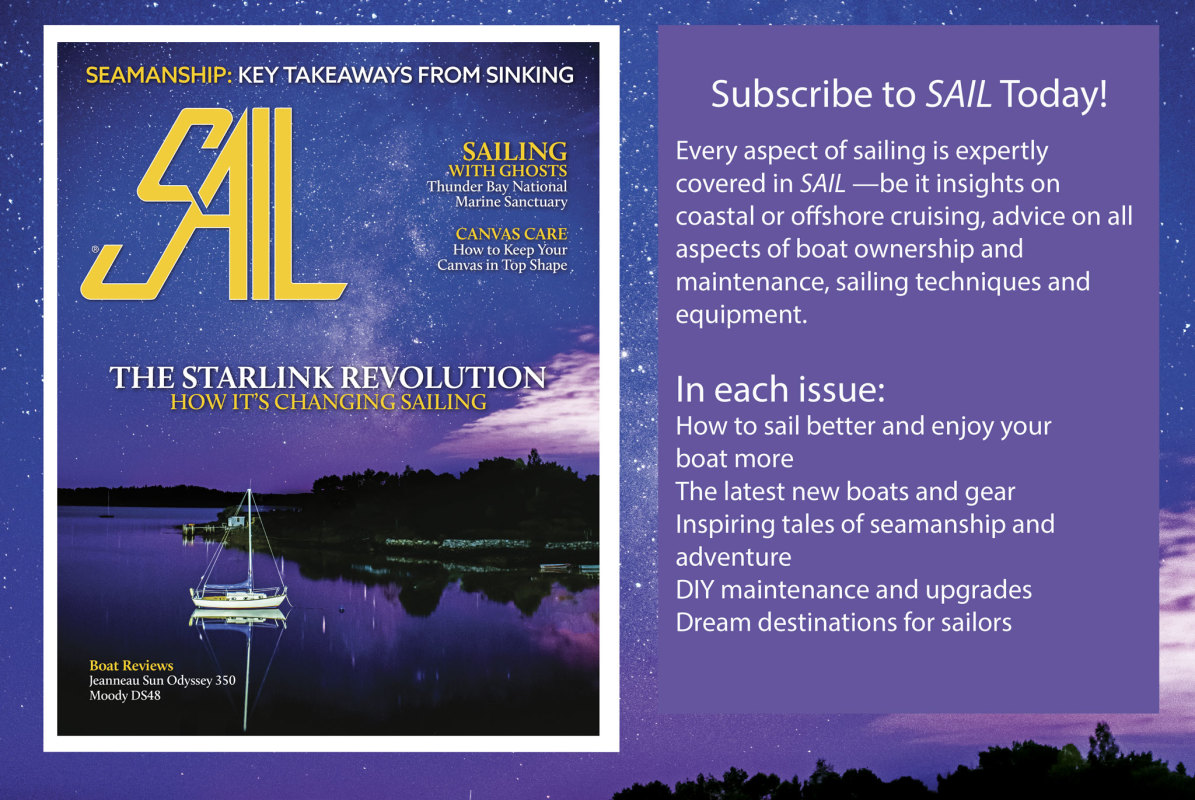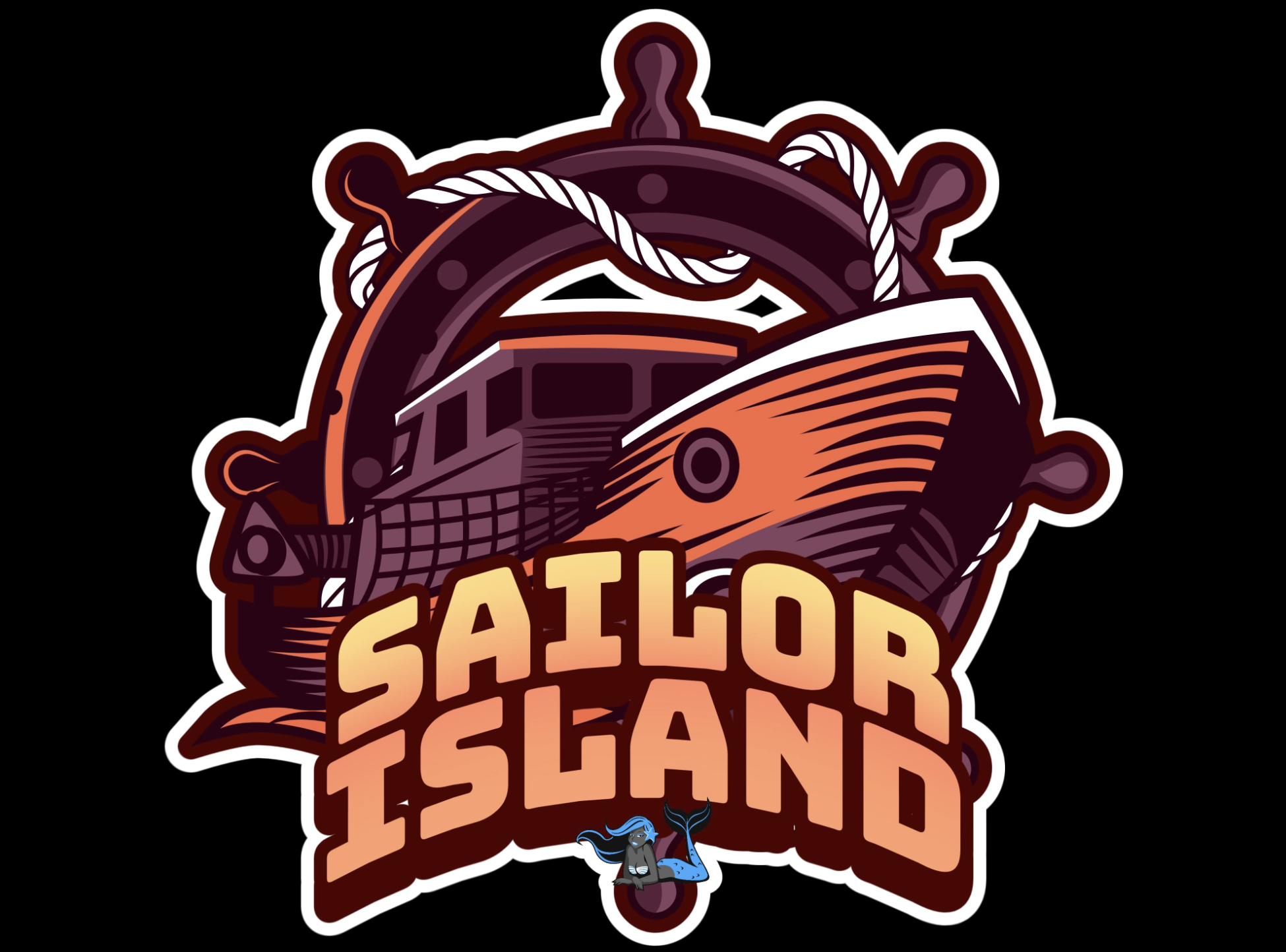
That is the column the place I hopelessly date myself, and it got here to me within the weirdest place—the quick passage simply past the bar at The Black Pearl in Newport, Rhode Island. I used to be on the town for the Newport Boat Present in September, making the annual trek for my favourite chowder, when reminiscence slammed into me.
“Hello, Mother! I’m right here, we’re all OK, it was an important race!”
I used to be on a pay cellphone in that darkish little hallway, calling my mother and father to allow them to know I used to be protected and sound after crusing within the 475-mile Annapolis-Newport Race. It had been an important race—we’d sailed effectively and earned silver, however even higher, we’d had a blast. The remainder of the crew had been within the bar, telling tales and laughing once more, and it was arduous to listen to my mother on the opposite finish of the road. However after days of getting no contact with land, the sense of journey that had begun once we solid off was full after I put the cash within the cellphone and known as house.
And I can’t assist questioning—do individuals really feel this similar sense of journey, the distinctiveness of being on this particular world of water and sky, after they’re sitting in a Zoom assembly for work by way of Starlink whereas crusing by means of an ocean?
That is the form of philosophical query that Hugo Kugiya poses in his story in our November/December challenge about how Starlink has utterly modified how we talk when crusing our boats now. With each astonishing advance in know-how, there’s one thing left behind—usually for completely legit causes, however left behind, nonetheless. And since I’m sufficiently old to recollect calling my mother on a pay cellphone after an offshore race, I clearly fall into the group he describes that regards Starlink with a type of awe mingled with nostalgia and perhaps a little bit wariness.
When my household and I left to go cruising full-time in 2008, the iPhone was only a yr outdated. On passages, our comms house consisted of emails I’d write and ship by way of SailMail on a Pactor modem with our single sideband. Almost all of our long-distance communications with different sailors got here by way of that very same SSB—morning climate with Chris Parker of Marine Climate Heart, the place of us would soar on forward of the printed to verify in with one another, and quite a lot of cruiser’s nets that served as security and information central relying on the place you had been. These nets generated an important sense of neighborhood, and SSB etiquette additionally inspired mutual assist; when one boat’s transmission wasn’t getting by means of, as an example, one other who might hear them would provide to “relay” and ship the comms alongside, appearing as an middleman.
It took me some time to get the cling of the SSB, to study after I might get on a selected frequency relying on propagation. It wasn’t easy. Regardless of that—or maybe due to it—mastering the ability was deeply satisfying. And perhaps it sounds ridiculous, nevertheless it felt like a part of the journey of doing what we had been doing. It wasn’t like being on land and selecting up the cellphone. It was something however.
Now comes Starlink, an absolute revolution that makes speaking whereas crusing just about identical to selecting up the cellphone. As Hugo relates, it has actually made crusing desires come true for individuals who now can work remotely whereas cruising full-time, far earlier of their careers than would have been doable earlier than. It has modified the sport when it comes to security offshore, when teams of sailors in rallies or races can talk rapidly and clearly by way of WhatsApp and even Fb to assist somebody in hassle. As an editor, it’s enabled me to work with writers whereas they’re in mid-passage, relatively than ready weeks to listen to from them.
And simply this morning, my son texted me 100 miles offshore whereas he and his dad are serving to ship a buddy’s boat. He gave me their place and a quick report, plus a pleasant photograph of the Gulf Stream. Although the boat’s Starlink is barely turned on a pair occasions a day to save lots of battery energy (that’s one draw back to the models, they’re power hogs), it’s serving to them keep on prime of some complicated climate and letting me know the place they’re since their AIS transceiver hasn’t been updating correctly.
So, am I glad they’ve Starlink? Completely. Would I need it on passage? Probably. All of us can’t be as blissfully self-contained as Bernard Moitessier was through the first Golden Globe, slingshotting his updates in a movie cannister to a passing ship. And anyway, it could appear that resistance is futile. All the identical, I’ll be protecting that SSB useful, even when only for the romance—and the backup.
Carry on crusing,
Wendy
wclarke@aimmedia.com
Click here for more letters and opinions.

November/December 2024
Trending Merchandise
[product_category category=”trending” per_page=”8″ columns=”2″ orderby=”date” order=”desc”].
